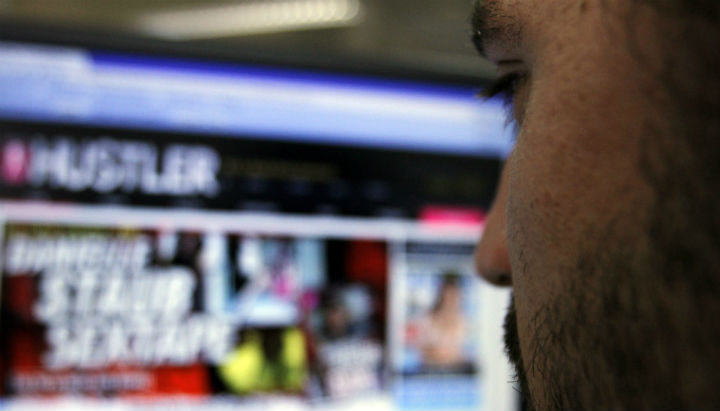VANCOUVER – The latest U.S. spy revelation from intelligence whistleblower Edward Snowden involves the National Security Agency (NSA) keeping an eye on porn.

The NSA wasn’t monitoring pornographic websites themselves or everyone accessing them, but reportedly kept an eye on the porn-watching habits of people believed to be “radicalizers,” possibly to put their credibility in question.
According to documents published in the Huffington Post, the U.S. wanted to find “vulnerabilities” that “would likely call into question a radicalizer’s devotion to the jihadist cause, leading to the degradation or loss of his authority.”
Snowden shared the documents with journalist Glenn Greenwald, who originally broke the story of the NSA’s secret telecommunications monitoring and metadata gathering program back in June, for his former employer the Guardian.
READ MORE: Report: NSA collecting millions of contact lists
Greenwald published the details and documents about the porn-watcher watching program on the Huffington Post late Tuesday.
Greenwald, along with co-authors Ryan Gallagher and Ryan Grim, reported there were six individuals the NSA kept tabs on — all of them Muslim.
The names of the suspected radicalizers were redacted, but the document outlined the individuals included two “well-known” clerics, a “respected academic,” one individual already imprisoned for “inciting hatred against non-Muslims” and a “well-known media celebrity,” who is based in the Middle East and reputed to say the U.S. government was behind the 9/11 attacks.
According to Greenwald, one of the men was a “U.S. person,” but did not live in the country.
None of the individuals were thought to be involved with terrorist activities. According to the documents, the individuals being monitored expressed controversial ideas online, in speeches and in writing.
Shortly after publication, the whistleblower website Wikileaks took to Twitter to question Greenwald’s decision to redact information..
“It stands to reason that exploiting vulnerabilities of character, credibility, or both, of the radicalizer and his message could be enhanced by an understanding of the vehicles he uses to disseminate his message to the susceptible pool of people and where he is vulnerable in terms of access,” the background document read.
READ MORE: ‘Independent’ panel reviewing NSA spying working closely with US gov’t spy chief’s office
The ACLU reacted to the Huffington Post story on Wednesday, calling the latest revelations “eerily reminiscent of past abuses of government surveillance authority.”
“Greenwald’s new story is a warning shot to those of us who have thus far ignored the Snowden revelations on the basis of having ‘nothing to hide,'” wrote Brett Max Kaufman, a legal fellow with the ACLU National Security Project.
“As Greenwald makes clear, the subjects of the NSA’s newly exposed effort to target individuals with influence on social media have tangential (if any) ties to real terrorists or violent extremists,” Kaufman wrote.
Snowden has been living in Russia since the end of June, shortly after he blew the lid off the NSA’s secret data mining operations.
Since the original release of documents in which he highlighted how the U.S. government was gathering the phone records of millions of Verizon customers, former security contractor Snowden has also revealed spying activities involving allegations of the U.S. spying on world leaders such as Germany’s Angela Merkel and Brazil’s Dilma Rousseff, the Canadian government monitoring communications from Brazil’s Ministry of Mines and Energy and Australia attempting to listen in on the cellphones of Indonesian President Susilo Bambang Yudhoyono and his wife.
READ MORE: U.S. mulls ending spying on allied heads of state




Comments